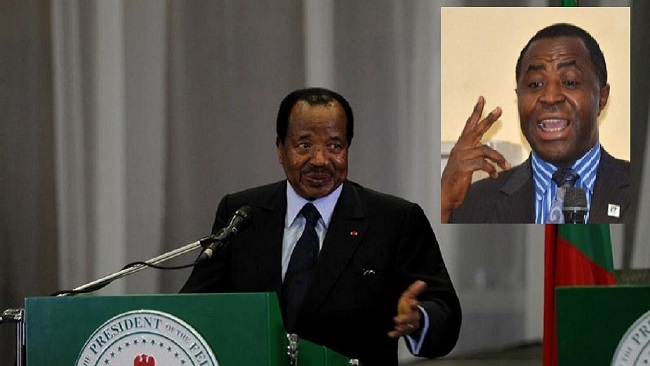Southern Cameroons Crisis: Biya is not the solution in Cameroon
The crisis in Southern Cameroons is now in its second year and the spark that led Cameroon down the fiery rabbit hole of the Anglophone revolution is still much alive and active. Frankly speaking, a lack of leadership in Yaoundé, Abuja and the African Union allowed the peaceful strike action led by Anglophone teachers and lawyers to metastasis into a horrific violent conflict, providing an opportunity for the powerful Anglophone Cameroon Diaspora to come in and initiate a struggle that is ending up with the creation of Africa’s newest nation-the Federal Republic of Ambazonia.
The one million dollar question is, does it represent a policy shift by the UN/Buhari administrations based on the notion of a shared common objective with Paris in Cameroon? Either way, it has blown a violent wind into the boats of those who argue that President Paul Biya should remain in power as a check against anti French forces in the CEMAC region.
There are indeed several controversies with that argument and most glaringly is the fact that it ignores the war crimes and other atrocities committed by the Biya regime. That long and horrific list includes helicopter gunboat attacks, mass killings, mass graves and the targeting of hospitals and schools, not to mention the arrest and torture of hundreds of Southern Cameroonians. Keeping Biya in power is undermining France’s credibility and core values including those of the United States.
We of the Cameroon Concord News Group can now reveal that Mr. Paul Biya doesn’t have the military capability to hold Cameroon together. The case of the Far North region abandoned by the army following massive deployments to Southern Cameroons serves as an illustrative example. Ever since the crisis in Southern Cameroons started, the Far North region has seen several deadly attacks carried out by the Nigerian Islamic sect, Boko Haram. Although Cameroon government’s forces have repeatedly claimed that the terrorist group has been defeated, they have been unable to secure the Far North while engaged in their assault against Ambazonia Self-Defense Council Restoration Forces. The situation is also true in the Central African Republic as attacks are now rampant in areas under the control of the Cameroon army and the gendarmerie.
To be accurate, what’s left of the French Cameroun army is an empty shell, precariously held together by France, the US and Chad in decreasing levels of importance. Any plan to keep Biya in power clearly runs counter to French and American interests. Upon closer examination, the very fabric that held French speaking and English speaking Cameroonians together is irreparably torn.
Biya took over from the late President Ahmadou Ahidjo in 1982 and to rule Cameroon, the so-called Roman Catholic Christian had to tailor his approach to the few ethnic groups in the Centre and South regions while appeasing the Muslims in the Grand North with numerous political positions and oppressing the Anglophones and at the same time setting the Bamilekes against one another.
In practice, it meant Biya controlling all levers of power and reinforcing his leadership through funny arrangements. He only thought of the Anglophones in 1990 and gave them a prominent position as Prime Minister with the emergence of the SDF party. Correspondingly, the individuals of the Anglophone community that had positions in government were those upon whose patronage he relied. In essence, Biya created a new tribe in Southern Cameroons-the CPDM tribe and demanded complete and total loyalty. Members of this CPDM tribe in Southern Cameroons are presently looking the other way while Biya and his army soldiers are killing hundreds of Ambazonians and destroying their towns and villages.
Many corrupt UN and African Union officials fail to recognize that Biya and his gang had forbade the development of any form of opposition or liberal centers of thought and cohesion — much less a free press — that could challenge his authority.
For 35 years, the key unifying driver of allegiance and cohesion was political appointments followed by loyalty to the Right Royal President. Now that the state of Cameroon has broken down, Biya and some Beti Ewondo political elites are trading the crisis in Southern Cameroons as the most attractive and unifying alternative ideology for all French Cameroonians.
The initial lawyers and teachers strike in Anglophone Cameroon may not have been designed to bring about separation but the way the crisis has been mismanaged has become central in influencing the trajectory of the uprising nonetheless. Having failed in every aspect of nation building, Biya stands today as a great magnet to which all diplomats from the EU, US, the AU or UN are attracted. The reason is simple: At 85, Biya is prepared to dish out millions of dollars to anyone who can guarantee his continued stay in power and protect his family.
By Soter Tarh Agbaw-Ebai





